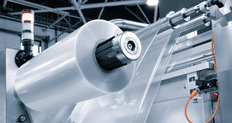- EBRD lends €25 million to finance a PET film facility in Klaipeda Free Economic Zone.
- The facility will produce PET film with up to 50% recycled content, exceeding EU's 25% requirement.
- The project aims to cut plastic waste by 13,000 tonnes and reduce emissions by 29,000 tonnes annually.
- 50 new jobs will be created in the first phase, supporting EU Green Deal commitments.

Investment Overview
The European Bank for Reconstruction and Development (EBRD) is investing €25 million to support the construction of a new facility in Lithuania's Klaipeda Free Economic Zone. This facility will be operated by Evertis, a subsidiary of Portugal's IMG Group, and will focus on producing polyethylene terephthalate (PET) film.
Sustainability Goals
The new facility aims to produce PET film with up to 50% recycled content, surpassing the European Union's minimum requirement of 25%. This initiative is expected to reduce plastic waste by up to 13,000 tonnes annually and decrease greenhouse gas emissions by approximately 29,000 tonnes each year.
Technological Advancements
Incorporating advanced Industry 4.0 digital manufacturing and industrial Internet of Things solutions, the plant will enhance operational efficiency and traceability while minimizing material waste. These technological upgrades are designed to meet the growing demand for sustainable packaging solutions in the food, beverage, and healthcare sectors.
Economic Impact
The project is set to create 50 new jobs in its initial phase, contributing to Lithuania's economic growth. It aligns with the European Union's Green Deal commitments by attracting international capital and expertise to the region.
Strategic Importance
This investment marks IMG Group's first manufacturing operation in Lithuania and the first Portuguese greenfield investment in the country. It represents a significant milestone in foreign direct investment for Lithuania, supporting the broader strategy of industrial decarbonization and the circular economy.

